
New artificial intelligence and automation technologies are quickly transforming the business world. Innovation is the keyword: software, automation, artificial intelligence are the keys to the near future in every business.
The research for professionals with technical and managerial skills to work in Artificial Intelligence has grown more than any other: the goal of the new Global MBA AI and Manufacturing is to train experts who are able to meet this requirement.
The Global MBA AI and Manufacturing trains top-level professionals with strong skills in process integration, robotics, data analytics and digital transformation. Experts who are able to manage the new and fast-changing industrial markets through a mix of academic and managerial skills.
The made in Italy know-how of leader companies, partners of BBS, is the core of an exciting training program that will provide technical preparation, managerial skills and strategic, financial and communication knowledge. The students will meet the most important companies that have already made automation and robotics the crucial factor for Italian international success.
The Global MBA AI and Manufacturing is a 12-month full-time program, taught in English. It is divided into three cycles. The first cycle starts with the study of orientation modules and general management. In the second and third cycle, the students will participate in track-specific courses (e.g., Business Transformation, Distributed Innovation Systems, Managing Humans and Robots), analyzing real cases and working on a capstone project. The lecture component is followed by a 500-hour internship in a leading AI and manufacturing company in Italy or abroad.
GET TO KNOW THE PROGRAMME
See below for the various events organized by Bologna Business School and discover what the Global MBA has to offer. Email globalmba@bbs.unibo.it for further information on these offerings.
Orientation Call
A one-to-one informative online session in which MBA Team members describe the program in detail and are available to answer any questions. Check our availability by contacting globalmba@bbs.unibo.it.
Tour of the Villa
Applicants can schedule an in-person guided tour of Villa Guastavillani, the 15-th century villa that serves as Bologna Business School’s headquarters. An MBA Team member will also be available for a personal interview and to discuss applications to the programme.
Virtual Open Day
Interested applicants will have the opportunity to participate in a Master’s presentation conducted by the Scientific Director of the program, Marcello Russo, followed by a formal Q&A session.
MBA for a Day – 1-hour Insight of a Class
With MBA for a Day, applicants can attend as observers for one-hour sessions in on one or more GMBA lectures to gain a close insight into the program.
Mock Test
The Mock test allows applicants to prepare for the written attitude test component of the entrance exam by taking a simulated version of it. For further information get in touch with the MBA Team.
Programme Advisory Committee
- Luca Cerati – Software Innovation Senior Manager, Coesia
- Lucia Chierchia – Managing Partner, GELLIFY
- Antonio Cibotti – Director of Marketing Strategies, Bucci Automation
- Paolo Codeluppi – Advanced Technology Manager, Comer
- Paolo Cominetti – R&D Director, Bonfiglioli
- Matteo Mingardi – Corporate Innovation & RD Manager, Pelliconi
- Simone Nannetti – Technical Director, Marchesini
- Gianluca Nardone – Group Chief Human Resources Officer, Carraro Group
- Paola Olivieri – Head of Business Development, Fameccanica
- Francesco Possati – Vice President, Marposs
- Federico Ratti – Industrial Director, FICEP S.p.A.
- Dario Rea – Director of Corporate Research & Innovation, IMA
- Enrico Rolih – Chief Technology Officer, Nadelli
Ranking
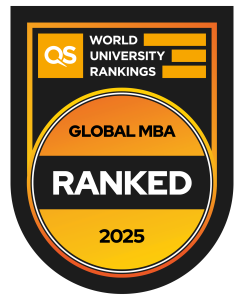
QS Quacquarelli Symonds is the international network focused on services, analysis and in-depth reports of post-experience and university education, geared toward international mobility and career development. The QS Online MBA Ranking is based on insights from the business world and a methodology that allows programs to be evaluated according to four parameters: Faculty and Teaching, Class Profile, Employability and Class Experience.
Accreditations
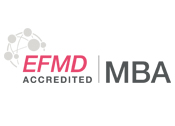
The Global MBA has received EFMD program accreditation for 5 years.

Bologna Business School is EQUIS – EFMD Quality Improvement System accredited, one of the most important international quality assessment and continuous improvement systems for Schools of Management and Business Administration.

Michele Poggipolini
Industry Leader
m.poggipolini@poggipolini.it
" The transformation, as well as the ongoing evolution, of the international market has totally changed the global industrial system in a profound and irreversible way, at an unprecedented pace. We are facing an epochal change, of both digital and ecological transformation, whose impact is now disruptive in all major sectors of the economy. I think of a sort of "new digital revolution" that is challenging the current strategies and business models of companies. I am honored to be, in this phase of major changes, the Industry Leader of the next Global MBA AI and Manufacturing, an honor also for the company I represent. "
Structure
The Global MBA is a 12-month full-time program including:
- 440 hours of class activities
- hours of individual and group work
- 500-hour internship
The academic year is divided into three terms:
I Term: September 2025 – December 2025
- “Ice-breaking” Weeks
- Orientation Modules
- General Management Courses (I)
II Term – III Term: January 2026 – June 2026
- Track-specific Courses
- General Management Courses (II)
- Professional Development Clinics
GMBA Modules are divided into four blocks:
- Orientation Modules
Statistics, Finance, Accounting, and Management Consulting
- General Management Courses:
Corporate Finance, Corporate Strategy, Performance Management, Marketing Management, People Management, Geoeconomic and Geopolitical Analysis, Operations and Supply Chain Management, Business Planning
- Track-specific Courses:
Business Transformation, Managing Humans and Robots, Automation and Robotics for Innovative Manufacturing, Distributed Innovation Systems, Capstone Project
- Professional Development Clinics:
Business Ethics, Leadership Mindset, Diversity and Inclusion, Digital Technologies and AI
For further information on individual modules, see the “Courses” section at the bottom of this page.
The three terms are followed by an internship period of 500 working hours. The internship can be carried out at various companies and agencies in Italy or abroad. The internship serves as an opportunity for students to put into practice the theory and techniques learned during the three academic terms. The internship will allow students to obtain hands-on experience by working on management strategies, analyzing business operations, and creating solutions to real problems. Students are encouraged to make the most of the internship opportunity and to learn from the professionals they will be working with.
At the end of the internship students will be required to submit a ‘Final Report’, which they will present to the Director of Studies showcasing their activities and analyzing the theories and lessons learned during the program.
An extracurricular Italian language course is also available for interested students.
COURSES
This course is aimed at introducing students to the practice of business consulting to make them learn how they can formulate precise recommendations for action, grounded in solid logical arguments, supported by reliable evidence, reinforced by indications for practical implementation, and justified by clear implications for company profitability and financials. The sessions will make students acquire core concepts associated with problem-solving, problem analysis, recommendation formulation, study design and analysis, presentation delivery, and client relationship management. The sessions will engage students with a set of exercises to practice and reflect on the acquired business consulting skills.
Bizzi Lorenzo
The goal of this course is to set the basis and prepare the audience for this class to be effective leaders in a business landscape that involves data and analytics in different areas of management. The course will introduce a broad range of mathematical and statistical methods that are used to solve data problems. Participants will gain hands-on practice gathering and analyzing data sets and cases in dedicated lab sessions. The course is organized in three sub-sessions to set the bases of analytics into different key business areas: accounting, finance, and statistics for marketing. In the end, the student will have gain greater analytical and statistical skills for data analysis in the areas of cost management, financial analysis, and marketing analytics, and will be ready to face advance courses in each discipline. cs.
Bartolini MonicaDuqi Andi
Tuan Annamaria
The course, whose nature is predominantly applicative, aims to develop a practical orientation towards entrepreneurship, providing the strategic and operational tools for the creation of new ventures and their subsequent development.
Lectures and readings provide an introduction to the topics to be covered in a business plan:
- business idea evaluation
- market and industry analysis
- product/service and intellectual property protection
- business model and operations
- financials in the new venture creation process
- engaging investors
- art of pitching
O’ Connell Timothy
Toschi Laura
The course provides a framework for understanding and analysing investment and financial decisions of corporations. Lectures and readings provide an introduction to present value techniques, capital budgeting, capital structure decisions, corporate cost of capital, initial and seasoned equity offerings and an introduction to corporate risk management.
Bajo EmanueleThe objective of this course is to provide BBS students a comprehensive introduction to strategy in today’s networked economy.
The course will cover three major topics:
- Classic Industry Based Strategy and Business Ecosystems Based Strategy – the former industry focused strategy and its evolution into the broader view of business ecosystems consisting of several industries;
- Emerging technologies – coming from fields as different as biotech, nanotech, robotics, artificial intelligence, they have the potential to change current industry boundaries and disrupt business models and leading firms;
- Scenario planning – preparing companies to deal with major uncertainties and different futures.
Doing business across borders is more complicated, dangerous and prone to near-instant change than any time since World War II and business leaders need help understanding how to adapt. The course will examine the economic and political forces that brought us to where we are today and look at the trends shaping the decade to come. The course will appraise the implications of these changes balanced between businesses, citizens, and public officials and help students understand how to work on our 196 country chessboard. The course will be enhanced by guest engagements with some of the globe’s leading analysts working at the intersection of markets and geopolitics.
Ross AlecMarketing activity is the core of operating business. It provides the managerial focus for interfacing with customers and the source of intelligence about customers, competitors, and general environment.
In order to make effective strategic decisions, managers must identify and measure consumers’ needs and wants, assess the competitive environment, select the most appropriate customer targets and then develop marketing programs that satisfy consumers’ needs better than the competition. Further, marketing focuses on the long-run relationship of a company to its customers as well as short-run
sales and profits.
The second part of the course focuses on the decisions that managers make and the tools that they use to support an effective marketing strategy. The attraction and retention of profitable customers must involve consideration of the product or service being offered, the way in which the product is sold and distributed, how pricing is set and structured, and how the value of the offering is communicated.
Montaguti Elisa
Operations management involves all the functions necessary to design, operate and improve the systems that create and deliver products and services. In this course, our focus will be on various production and operations functions, decisions and trade-offs that are necessary to create value for an organization. In order to reflect today’s work environment half of the course will be focusing on boundary spanning activities like supply chain management and sourcing as significant opportunities and challenges for operations management emerge from globalization.
Son Byung-GakThis course’s central focus is the managing of the most valued organizational resource, “People. Therefore it will address human behavior in organizations and those practices and systems within organizations that facilitate or potentially hinder effective behavior.
Conceptual frameworks, case discussions, and skill-oriented activities are utilized to effectively address each topic/issue. Topics included in this course are:
- motivation
- communications
- group dynamics
- power/politics
- conflict resolution
- human resource development
Class sessions and assignments are structured and implemented to help students acquire the skills that managers and leaders need to improve performance and organizational relationships in a global setting. “Managing people is learning to manage relationships”.
This course aims at:
- helping students to further develop a thorough understanding of corporate external and internal reporting practices;
- providing students with tools to use financial statement information in analysing a firm’s performance and financial position;
- providing students with tools to use cost and segment information in operational and strategic decision making contexts.
On completion of the course, students should:
- be familiar with the technical terminology used in accounting;
- be able to asses a company’s financial and operating performance using its financial statements;
- be able to critically analyse a company’s financial report;
- understand the features and organizational implication of a company’s information and performance management system.
High flexibility, dynamic demand, increasing customization, high quality standards, small batches and short life cycle are the key factors of the Industry 4.0 era. Innovative flexible manufacturing and assembly systems (FMSs & FASs) need to match these factors joining productivity to versatility, quality to adaptability. In this context, high-speed manufacturing machines, robotic handling devices, automated guided systems (AGVs) and human operators are connected and they have to act synergically.
This course aims at exploring a coordinated panel of (1) design methods, (2) support strategies and (3) quantitative approaches to help the Industry 4.0 practitioners in the tactical and operative management of innovative production systems.
Bortolini MarcoNowadays companies are constantly forced to align new technological opportunities and the way they create value. Digital platforms are reinterpreting the role of trust and its relevance to make an intermediary worth. Manufacturing companies are more and more extending their activities beyond the delivery and set up of their machines, adding key aftersales components. Automakers are pushed by new technologies to find significant revenues opportunities in software and not just hardware. System integration companies reap higher margins than robots producer by customizing tools and processes. In this course, we will analyze these trends and their impact on people, culture, and processes.
Barbieri PaoloMillo Francesco
Great ideas become successful innovation combining several elements: new solutions, original knowledge, inspiration, complementary assets, sound management and a good dose of luck. The more complex the technological landscape becomes, the greater the need to engage multiple actors in this fascinating and complex process. In this course, we will explore why it is important to collaborate to innovate and what alternatives could be pursued. A set of managerial tools ranging from crowdsourcing to open innovation process will be presented and discussed in different industries and markets.
Meoli AzzurraThe simultaneous presence of Humans and Robots in the production chain creates management, ethical and legal issues. This course aims, on the one hand, to trace the legislation already introduced in some national and supranational systems, and on the other hand, to verify case law. Experts from the most renown hi-tech companies will be involved in the course by describing some of the most innovative practices, while keeping into consideration concrete policy proposals. Among other areas, after a definition of AI and robotics with a particular focus on their technical profiles, the course aims to verify the ethical implications and the relationship between the humans and the robots, taking into consideration also the organizational limits and responsibilities. We will also analyze the implications of the use AI and robotics in the fight against discrimination and diversity, potentially at risk, following the sharing of sensitive data. The government of data, including personal and sensitive ones, requires us to draw particular attention to the study of the regulations for the protection of privacy and intellectual property. Cases of interest and application models will also be discussed in the field of public law. First of all, we will discuss on who the use of AI can shape the meaning and orientation of public consent, but also the determination of public policies. Particular attention will then be given to the regulation of applications and robotics, starting from the models already being tested.
RaffiottaThe Capstone Project (CP) is the final and unique project that Global MBA students will complete in each track as the culminating experience of their academic year. The CP distinctive feature is that students will work as a consulting team on real-world projects that companies are working on and/or want to implement. The “client” companies participate in the CP not only to contribute to the GMBA educational journey and let students improve their professional competence in a real “industrial project”, but also because they see real value in the work of our students, who will serve as real consultant and will apply the knowledge, theories and tools acquired during the year.
The objective of this course is that students, through their own work on a company-based authentic project, will synthesize and develop their knowledge as well as their skills in their chosen sector. The students will work with a real problem within an established organization or start-up. By working on problem identification, collecting data, analyzing, drawing conclusions, and presenting a thoroughly elaborated plan for the implementation of the project, students will draw upon their knowledge at the same time as they train their skills in central areas, such as leadership and project management.
Highlights:
- Work on real project in an existing company or start-up
- Students work in teams
- Students work on-site, for some days, at their project companies
- Each team gets a company advisor
- Confidentiality agreement signed to kick off the project
To complete their study plan, GMBA students will need to choose an elective course.
This course can be chosen from any of the track-specific courses from other tracks, or from a selection of courses offered by BBS’ partner school IESEG School of Management as part of the Global MBA program.
The clinics are interactive sessions with the presence of experts business leaders who will share with the students their knowledge and experience on the topic in an informal atmosphere. Through the clinics students will have the opportunity to reflect with business leaders on cutting-edge themes – namely business ethics, digital technologies and AI, diversity and inclusion, and leadership – that characterise the activity of contemporary global organisations. Each clinic, coordinated by an academic professor or a manager will challenge students with the most relevant knowledge and trends on the specific topic of interest.
Various ethical issues are encountered during any business leader professional life. This fact brought Business Ethics as a subject to become popular in MBA curriculum. The approach generally adopted is to import one or several ethical theories into the world of business and commerce in order to form moral judgments about business practices, or to train business leaders to be more efficient decision makers. While such goals are important this clinic, coordinated by Prof. Alessandro Pastore through the interaction with global leaders and their stories and actions has the ambition to develop a more fundamental practice: to help future business leaders to identify and navigate ethical dilemmas that arise in business and making think ethically a way to recognize, articulate, and evaluate the challenges that often place the actions of individual entities at odds with global coexistence with particular reference to Sustainability.
Topic 1: Corporate culture and individual responsibility
Topic 2: Ethical Decision Making
Topic 3: Giving Voice to Values.
Topic 4: Sustainability paradox: “in order to sustain, we must transform”
Topic 5: Ethics of Sustainability
Pastore AlessandroThe clinics are interactive sessions with the presence of experts business leaders who will share with the students their knowledge and experience on the topic in an informal atmosphere. Through the clinics students will have the opportunity to reflect with business leaders on cutting-edge themes – namely business ethics, digital technologies and AI, diversity and inclusion, and leadership – that characterise the activity of contemporary global organisations. Each clinic, coordinated by an academic professor or a manager will challenge students with the most relevant knowledge and trends on the specific topic of interest.
This clinic aims at enabling students to evaluate the likely impact of future IT innovations on their firm and industry. This requires a correct understanding of the key drivers of technology’s impact on the business ecosystem. It also aims at enabling students to understand and experience the design process.
This clinic will tackle the key IT domain that have the potential to transform firms’ actions and industries. We will touch topics such as: open-source design, chatbot, Big Data, simulation, augmented reality, digital twins, Smart Industry and robotics. We will also tackle the needed process to end up with a product.
During this clinic, participants will be expected to engage in both the technical and the managerial dimensions of digital challenges.
The clinics are interactive sessions with the presence of experts business leaders who will share with the students their knowledge and experience on the topic in an informal atmosphere. Through the clinics students will have the opportunity to reflect with business leaders on cutting-edge themes – namely business ethics, digital technologies and AI, diversity and inclusion, and leadership – that characterise the activity of contemporary global organisations. Each clinic, coordinated by an academic professor or a manager will challenge students with the most relevant knowledge and trends on the specific topic of interest.
Creating inclusive organizations is widely accepted to be not only a social imperative but also a key to business success. Companies with diverse employees and an inclusive culture have potential to be more innovative, closer to their customers and more attractive to talent than monocultural ones. A range of dimensions need to be considered including ethnicity, cognitive diversity, gender, age as well as national and professional cultures.
This clinic, coordinated by Robert Gibson, provides a forum for students to reflect on and exchange their experience with each other and invited practitioners on a range of diversity and inclusion issues. It aims to increase awareness of the importance of cultural diversity and the impact of bias as well as fostering understanding of ways of mitigating bias, creating inclusive workplaces and leveraging difference for mutual benefit.
Topic 1: Impact of diversity and inclusion
Topic 2: Dimensions of cultural diversity
Topic 3: Barriers to inclusion
Topic 4: Creating inclusive organizations
Gibson RobertThe clinics are interactive sessions with the presence of experts business leaders who will share with the students their knowledge and experience on the topic in an informal atmosphere. Through the clinics students will have the opportunity to reflect with business leaders on cutting-edge themes – namely business ethics, digital technologies and AI, diversity and inclusion, and leadership – that characterise the activity of contemporary global organisations. Each clinic, coordinated by an academic professor or a manager will challenge students with the most relevant knowledge and trends on the specific topic of interest.
Society has high expectations towards MBA graduated students. A big one concerns the leadership of GMBA graduates who are expected to have a proactive and constructive role in modern organizations and societies. However, the literature suggests that GMBA graduates often perform below expectations on this important dimension – despite being one of the most critical for a successful life and career. In this clinic, coordinated by professor Marcello Russo, students will have a chance to interact with global leaders who can inspire them with their stories, actions and daily operations.
Topic 1: Leading self: Discovering one’s strengths and future possible self
Topic 2: Leading change
Topic 3: Leading the team
Topic 4: Leading the C-suite
Topic 5: Leading the organizational culture
Russo MarcelloInternational students enrolled in the Global MBA program can immerse themselves in the Italian language, culture, and business customs through a personalized Italian language course. This non-compulsory activity will enrich the student MBA experience with essential language skills and cultural insights.
Learning approach
The main aim of our teaching staff is to first lay down a solid foundation of theory and then to build on this foundation by introducing more practical aspects. This method will enable our students to confidently enter the work environment of the industry, ready to manage a variety of scenarios.
The teaching staff will help you develop your understanding of these concepts and techniques through the use of lectures and seminars; group projects and company visits; guest speakers and case studies; videos and presentations; as well as individual assignments and assisted private studying.
The courses are structured to give the maximum freedom to learn to the students and allow the professors to teach and assess the students in the best way possible. Assessments can take the form of individual/group presentations, projects, oral and written exams as well as, of course, class participation.
Faculty
Faculty members at Bologna Business School work together offering outstanding teaching standards. An international and interdisciplinary approach is guaranteed by a joint team of distinguished national core professors, adjunct, visiting professors, guest speakers and top managers.
-
Emanuele Bajo
Full Professor of Corporate Finance
University of Bologna
-
Paolo Barbieri
Associate Professor of Business and Management Engineering
University of Bologna
-
Monica Bartolini
Associate Professor of Management Accounting
University of Bologna
-
Lorenzo Bizzi
Associate Professor
California State University, Fullerton
-
Marco Bortolini
Associate Professor of Industrial Mechanical Systems Engineering
University of Bologna
-
Lorenzo Dal Maso
Associate Professor of Financial Accounting
University of Bologna
-
Ketian Dou
Product Marketing Management
Amazon
-
Andi Duqi
Professor of Banking and Finance
University of Bologna
-
Riccardo Fini
Full Professor of Innovation Management and Entrepreneurship
University of Bologna
-
Robert Gibson
Interculturalist
-
Azzurra Meoli
Assistant Professor of Business and Management Engineering
University of Bologna
-
Francesco Millo
Strategy, Business Development and Marketing Director
TESYA Group
-
Elisa Montaguti
Full Professor of Marketing
University of Bologna
-
Antonio Roberto Ramos Nogueira
Full Professor of Strategy
Coppead Graduate School of Business
-
Timothy O' Connell
Entrepreneur, Innovator & Educator
Venture Building | Open Innovation | Digital Strategy
-
Alessandro Pastore
Executive Director Business Development
Cambridge
-
Edoardo Carlo Raffiotta
Adjunct Professor of Economic Law
Cattolica University of Milan
-
Alberto Regattieri
Full Professor of Operations and Manufacturing Systems
University of Bologna
-
Alec Ross
Distinguished Adjunct Professor
Bologna Business School
-
Marcello Russo
Full Professor of Organization and Human Resource Management
University of Bologna
-
Byung-Gak Son
Senior Lecturer in Supply Chain Management
Bayes Business School
-
Laura Toschi
Associate Professor in Entrepreneurship and Innovation
University of Bologna
-
Annamaria Tuan
Senior Assistant Professor of Marketing
University of Bologna
-
Alon Wolf
Full Professor of Mechanical and Biomedical Engineering & Head of Biorobotics and Biomechanics Lab
Technion - Israel Institute Of Technology
GLOBAL MBA CLASS - a.a. 2023/2024
GEOGRAPHICAL ORIGIN
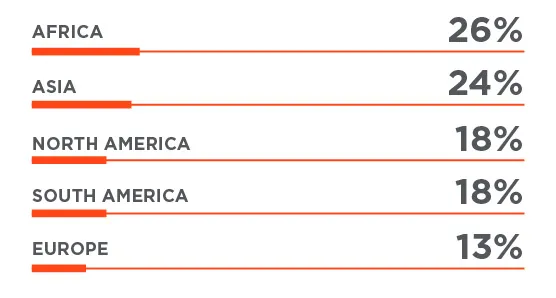
ACADEMIC BACKGROUND
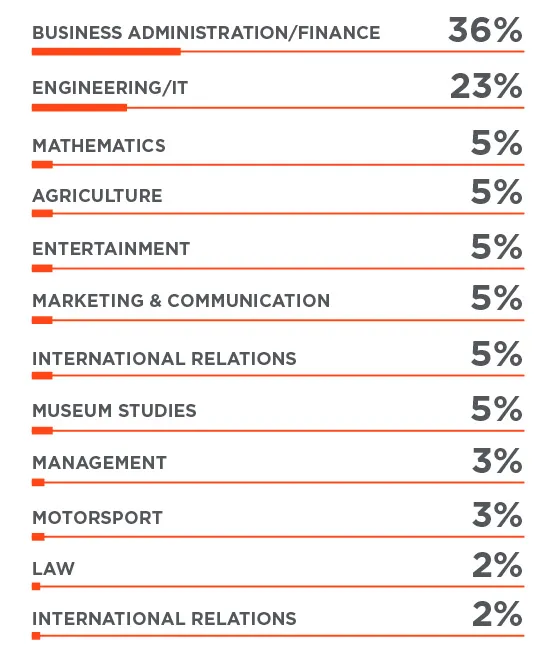
PROFESSIONAL BACKGROUND
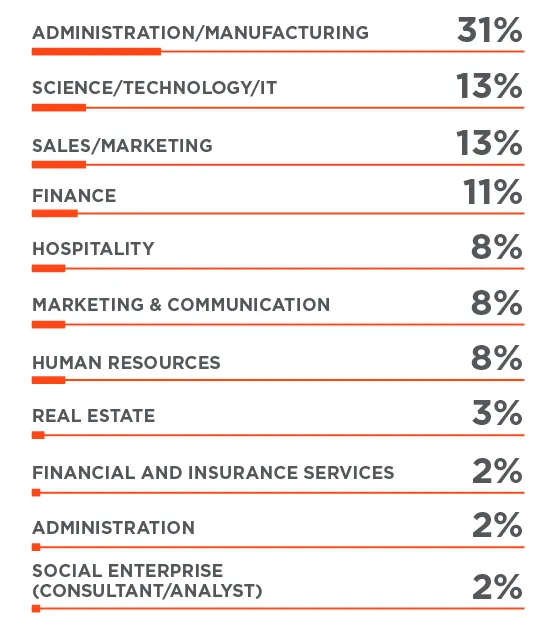
-
30 y.o.
AVERAGE AGE
-
100%
INTERNATIONAL STUDENTS
-
24
COUNTRIES REPRESENTED
-
45%
FEMALE STUDENTS
-
7 years
AVERAGE WORK EXPERIENCE
CAREER DEVELOPMENT
The Career Office of the Global MBA program is crucial for students pursuing a career in the field of business. It connects students to opportunities, offers tailored support, and taps into a global network of alumni and professionals. This assistance helps students navigate international job markets, boosting their employability and maximizing the value of their Global MBA.
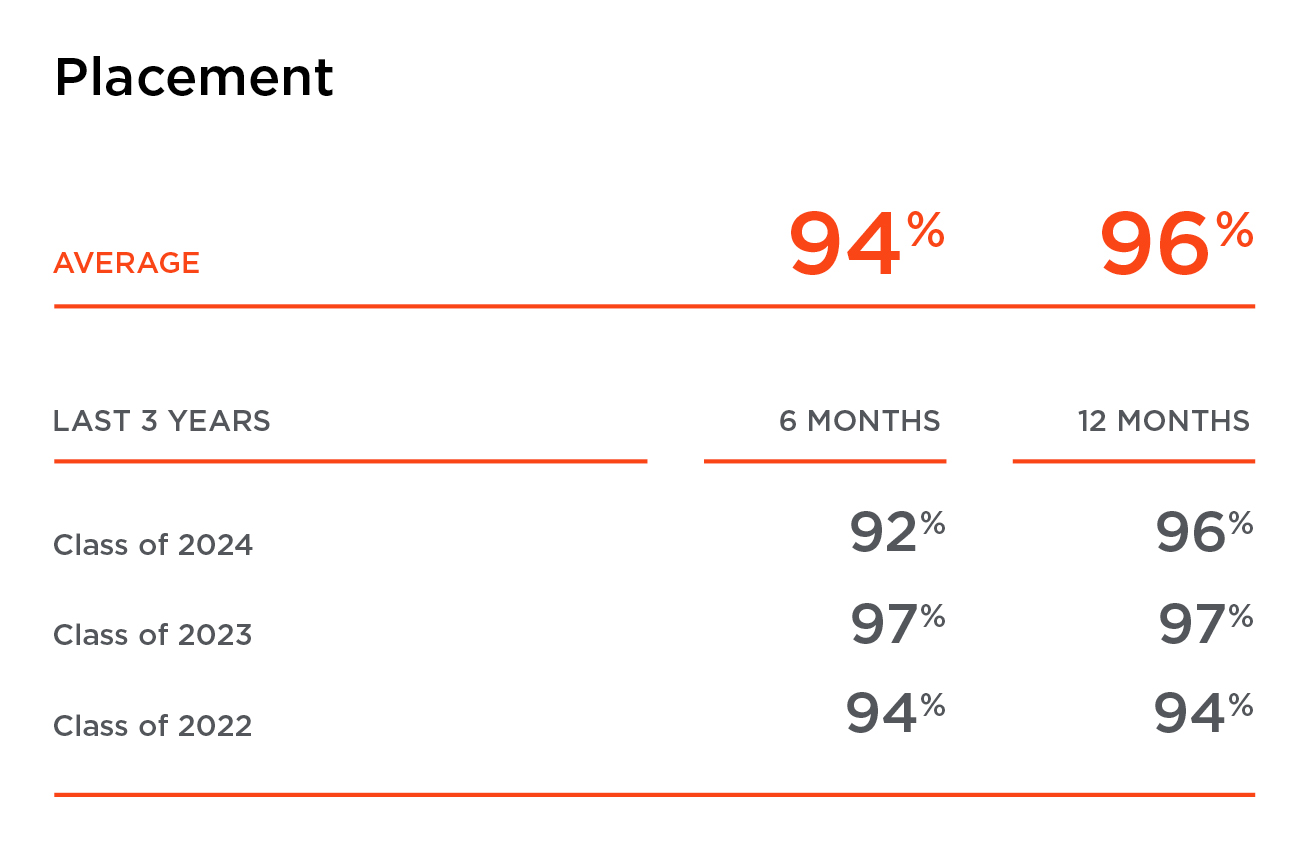
The goal of the Career Service, coordinated by Andrea Zani (Head of Career Service), with the support of Alessandro Bonfiglioli (Executive Career Development Advisor), is to provide the tools and resources to gain access to the labor market and find an internship. The aim is also to support the businesses of our territory, and not limited to it, to select talents to employ; talents from all over the world, who come to Bologna to immerse themselves in the culture and the excellence of Made in Italy.
The Career Service Team supports the students in their journey made of learning and professional development, through a series of seminars and activities, with the aim of providing the necessary tools and resources to gain access to leadership positions in the labor market. Furthermore, thanks to professional career counselors and a process to identify one’s own “Strengths” (Point Positive Assessment) developed in collaboration with Essentic, students are supported by way of a customized service to establish a professional development plan, which will help them achieve their goals in their search for an internship.
The process is carried out through the following steps:
- CV and Cover Letter Writing
- Creating and effective LinkedIn profile
- How to crack the job interview
- Initial orientation meetings
- Career Coaching with industry experts
- Continuous support to students through 1:1 sessions

Andrea Zani
Head of Career Service
andrea.zani@bbs.unibo.it
“In the past few years, the labor market has undergone and dealt with major changes. The way to present yourself changes, with personal branding, as well as the way you do networking, with a professional approach. Like in any other time of transition, opportunities are endless, but you need to be able to recognize, manage and seize them. The Career Service of the Bologna Business School supports students to enable them to develop their potential and their professional growth.”
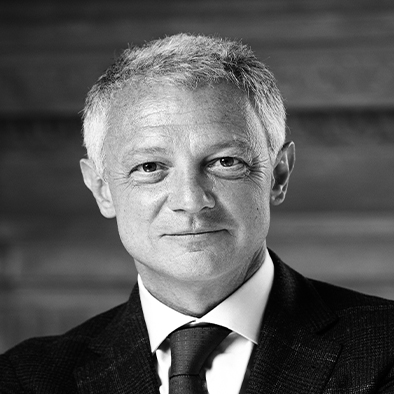
Alessandro Bonfiglioli
CEO of CAAB S.p.A.
alessandro.bonfiglioli@bbs.unibo.it
“The current labor market, which is increasingly complex and unstable, makes it difficult to maintain or expand the employability. Through a system of individual and collective meetings, networking events, seminars, workshops and a real dedicated retreat, BBS career development services support the participants of the Masters from the first day of their training path to maximize career opportunities”
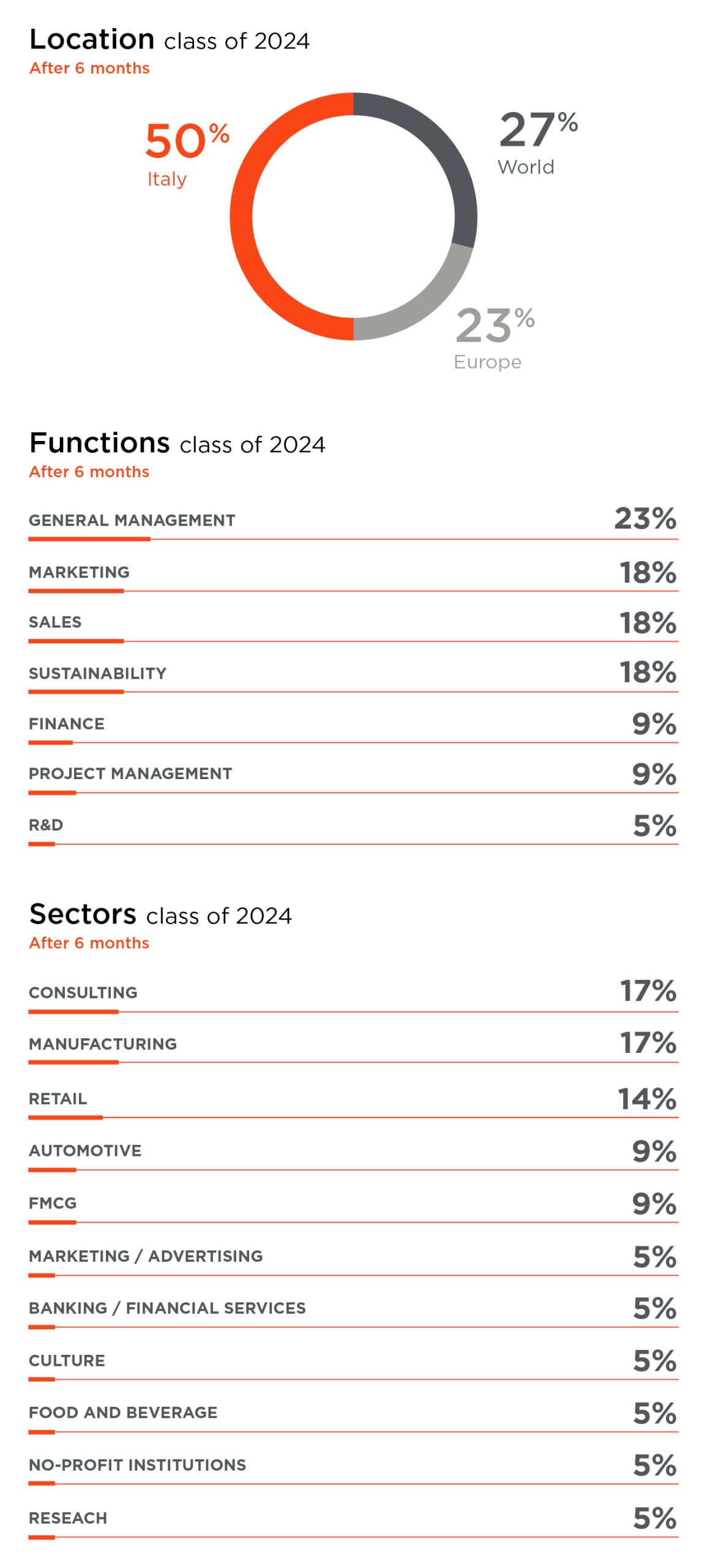
COMPANIES
National and international companies support the Global MBA for different activities that concern the design of the courses, company visits, guest lectures, project works, besides hosting students for the final internship. Indeed, to this end, over the years the Bologna Business School has established a large network of and a sound partnership with the most important Italian and European companies thanks to a customized approach, one that is based on the needs of each individual business. The Career Service Team supports this process through different initiatives:
- Sending a CV Book to partner companies
- Sharing internship and work opportunities
- Company Presentations on campus / on site
- Career Days
- Virtual Career Fairs
- Implementation of Company Project Works
- Activities in the classroom with presentations by Managers, HR Professionals and Alumni
Moreover, companies support the Global MBA students with scholarships, professional opportunities, career fairs and company presentations.
The companies that worked with us in 2023/2024:
ARTEMEST ATLANTE AUTOMOBILI LAMBORGHINI BOLOGNA FC BOTTERO GROUP CAAB ADVISORY CARPIGIANI CHAMPION EUROPE CRIF DALLARA DATALOGIC DISPENSA EMILIA FAAC GROUP FABBRI 1905 FINAPP FORNO BRISA GENERALI GLAM GRANAROLO GREEN-GO GRUPPO MONTENEGRO INFOSYS INTERCOS KOOLBOKS LA RINASCENTE LIU JO LORO PIANA MARRIOTT MAX MARA FASHION GROUP MORBIDELLI OFFICINE GULLO RONCUCCI AND PARTNERS SIDEL TULIPS VERTIV VINITALY VISA CASH APP RACING BULLS
FEES
The tuition fees for the Global MBA Program are 35,000 euros (VAT free) to be paid in three installments (the first installment is due upon enrollment).
The fees include participation in the Master, all the study material which will be made available through the online platform, and access to the services and facilities of Bologna Business School, such as: a personal account for the BBS Wi-Fi, access to the internal gym and special rates for the School restaurant. Furthermore, the fee gives participants the right to take advantage of supporting activities of the School, such as the language courses and the master lectures by invitation.
Free parking on the BBS campus is also available to students.
In addition, University of Bologna Student Card grants access to all of the university facilities including more than 100 libraries (also consist of online subscriptions and databases), the three city center canteens and all university student related discount offers. Further information regarding these facilities can be found on the University of Bologna website: http://www.unibo.it/en/services-and-opportunities/index.html.
SCHOLARSHIPS
Bologna Business School offers a variety of scholarships for MBA participants, with both full and partial funding available.
All applicants, regardless of nationality, are encouraged to apply, and scholarships are allocated based on merit — specifically, the results obtained in the second part of the selection process.
The assessment considers both academic and professional achievements, and the awarded scholarships exclusively cover tuition expenses.
AFRICA SCHOLARSHIP PROGRAM
Bologna Business School grants the Africa Scholarship Program for the Academic. This Program aims to facilitate the participation of young bright talents from Africa wishing to pursue an MBA and contribute to the social and economic development of their Continent.
This program is specifically tailored for those who have demonstrated outstanding performance in the selection process, and as these scholarships are limited, they are awarded to the most deserving candidates.
REQUIREMENTS
In order to apply it is necessary to have:
- Bachelor’s degree
- English language proficiency
- 3 years of qualified work experience (cumulative)
APPLICATION PROCESS
This Master is open to all applicants with at least three cumulative or consecutive years of work experience, obtained at any time before the enrollment deadline of each round.
There are four rounds of admissions:
- the first round will be open for applications until February 2025
- the second round will be open for applications until March 2025
- the third round will be open for applications until May 2025
- the fourth round will be open for applications until June 2025
The four rounds are open to candidates of all nationalities.
Four easy steps to begin:
-
- Download and fill out the application form
- Complete the online registration by paying the 60-euro fee at https://studenti.unibo.it
- Upload all the requested documents on Studenti Online
- Send via e-mail the complete digital copy of your application packet to the Global MBA team of Bologna Business School to globalmba@bbs.unibo.it
Documents that must be sent:
- Application form
- Curriculum Vitae
- Diploma and transcript for your qualifying degree
- Passport photocopy
- Motivational letter
- One reference letter from an employer, written in English (additional letters optional)
- Signed copies of your eligibility summary sheet and a receipt of the 60 euro application fee (both downloadable from ‘studenti online’ following registration)
- An English language certificate (TOEFL, IELTS or other) attesting a minimum English level of B2 in the European framework. Applicants without this certificate will need to take a written English test as part of the admission process.
- Declaration of Value* / Diploma Supplement* / Conditional Enrolment Form
- If available, a GMAT/GRE certificate with a score above 600 (GMAT) or equivalent (GRE). Applicants without this certificate will take a written attitude test as part of the admission process.
Interested applicants can email globalmba@bbs.unibo.it to schedule a tour of Villa Guastavillani and discuss their application to the GMBA.
*IMPORTANT: Students possessing a degree obtained outside the EU must submit legal recognition of their qualifications for the purposes of admission to the program, which is issued by the competent Italian Diplomatic Representation in the country in which the degree was obtained (“Declaration of Value”). For further guidance, please check the following page: https://www.unibo.it/en/teaching/enrolment-transfer-and-final-examination/translation-authenticity-and-value-of-foreign-qualifications.
Candidates with degrees from within the European Union may request a “Diploma Supplement” directly from their Universities. Should the candidate be unable to obtain one of these documents before the deadline, it may be temporarily replaced with a Conditional Enrolment Form, which has to be sent shortly after applying.
SELECTION PROCESS
The selection process consists of two distinct phases.
The first phase includes taking an English test and an aptitude test.
Only candidates who pass both tests will be able to access the second phase of the selection process, consisting of an individual interview with a commission made up of professors and directors of Bologna Business School.
Admission to the program is subject to the positive assessment of the candidates’ individual interview and qualifications (e.g. curriculum vitae, GMAT/GRE, reference letters, etc.). The admission board, consisting of Bologna Business School faculty members, reviews the applications on a rolling basis. Candidates will be contacted by an admission team member as soon as their application has reached Bologna Business School.
In line with the number of available places, admission to the program is granted according to the applicants’ position in the list of qualified candidates, drawn up on the basis of the total score awarded at the end of the admission process. Students who achieve positions of merit in the final list of admitted candidates may benefit from full or partial scholarships.
Data Sheet for Professional Masters Call for Application Procedural Instruction Download Application Form



